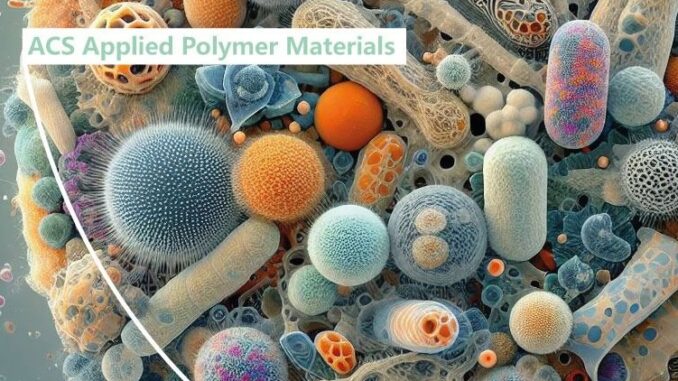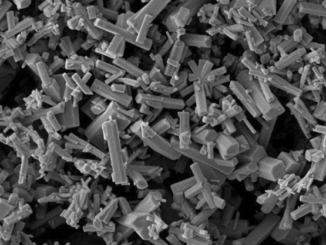
Unveiling Antimicrobial Properties and Crystallization Induction in PLA Using α-Ag2WO4 Nanoparticles
Abstract: In this study, α-Ag2WO4 nanoparticles were synthesized and then immobilized within the poly(lactic acid) (PLA) matrix at varying concentrations (0.5, 1.0, and 3.0%). X-ray diffraction revealed the successful incorporation of α-Ag2WO4 nanoparticles into the PLA matrix without the presence of undesired phases. Furthermore, crystallinity results indicated that the particles did not have the potential to act as nucleating agents under quiescent conditions, but induction in crystallization was observed under nonquiescent conditions. Rheology analysis demonstrated an increase in complex viscosity values for all samples containing α-Ag2WO4 when compared to those of the pure polymer, indicating good dispersion and distribution. The antimicrobial activity of the composites was particularly effective against Escherichia coli and at higher concentrations for Staphylococcus aureus and Candida albicans after 16 h of contact. The antimicrobial efficiency was associated with the ability of α-Ag2WO4 to generate reactive oxygen species (ROS) and the ionic release of Ag+, causing irreversible damage to the membranes of these microorganisms. This type of study sheds light on the development of PLA platforms with potential antimicrobial activity and increased crystallization capacity under the employed processing conditions.
Author(s): Letícia A. Onue, Lara K. Ribeiro, Mariana O. Gonçalves, Elson Longo, Cristina Paiva de Sousa, Marcelo Assis, and Sandra A. Cruz
ACS Appl. Polym. Mater.
Published: March 12, 2024
DOI: https://doi.org/10.1021/acsapm.3c03012
CDMF
The CDMF, hosted at the Federal University of São Carlos (UFSCar), is one of the Research, Innovation and Dissemination Centers (RIDC) supported by the São Paulo State Research Support Foundation (Fapesp), and also receives investment from the National Council Scientific and Technological Development (CNPq), from the National Institute of Science and Technology of Materials in Nanotechnology (INCTMN).




